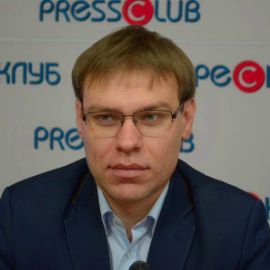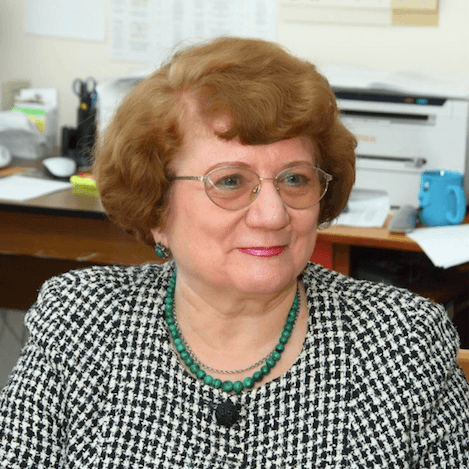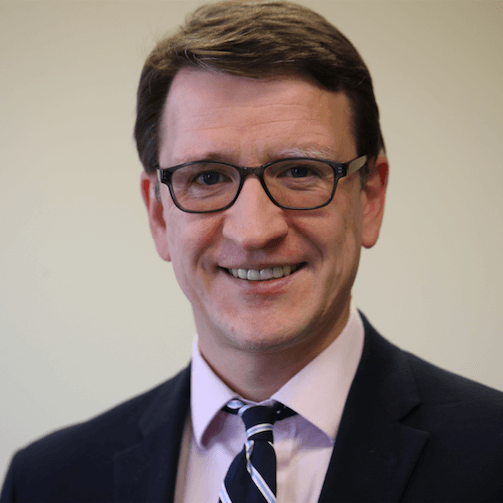Over the past few years a number of politicians and experts have voiced concern regarding the existing balance of constitutional powers in Ukraine’s political system. Some of them, including VoxUkraine authors, have offered their views, more or less detailed, on which form of government would be best for Ukraine. VoxUkraine has asked some of the leading Ukrainian and foreign-based comparative political scientists whose research focuses on the performance of different political regimes and exploring the relations between the executive and the legislature to provide their perspective on whether Ukraine should change its system of government. Here is what they think.
Note. Selection of commentators.
To start the discussion, the author invited those comparative political scientists whose main research interests include the development of political regimes in Ukraine and other post-Soviet countries with a focus on or significant attention paid to the balance of powers and relations between the executive and legislative branches, and who have recently (since the start of 2013) authored or co-authored academic journal articles, scholarly books or book chapters dedicated to this issue.
The author has also invited and will continue to invite a wider circle of political scientists and other experts to share their views to ensure that the question is considered from a variety of perspectives. Their comments will be added to this publication as they arrive. VoxUkraine is preparing more detailed articles on Ukraine’s political system for publication. The first article in the series can be found here.
- Svitlana Chernykh (Australian National University)
- Vitaliy Lytvyn (Ivan Franko Lviv National University, Ukraine)
- Antonina Kolodii (Lviv, Ukraine)
- Uliana Movchan (Karazin Kharkiv University, Ukraine)
- Paul D’Anieri (University of California Riverside, USA)
- Sarah Whitmore (Oxford Brookes University, UK)
- Serhiy Kudelia (Baylor University, USA)
- Paul Chaisty (University of Oxford, UK)
- Lucan Ahmad Way (University of Toronto, Canada)
- Thomas Sedelius (Dalarna University, Sweden)
- Yuriy Matsiyevsky (University of Ostroh Academy, Ukraine)
- Henry E. Hale (George Washington University, USA)
Svitlana Chernykh, Senior Lecturer in Political Science, Australian National University
Co-author of “Coalitional Presidentialism and Legislative Control in Post-Soviet Ukraine” and “How do Minority Presidents Manage Multiparty Coalitions? Identifying and Analysing the Payoffs to Coalition Parties in Presidential Systems.”
 It could be tempting to keep changing the system of government in Ukraine. However, previous experience has shown that it will not help to solve the problems the country is facing. Furthermore, it could serve as a distraction and take attention away from other institutions, which need modification and strengthening. Two institutions in particular:
It could be tempting to keep changing the system of government in Ukraine. However, previous experience has shown that it will not help to solve the problems the country is facing. Furthermore, it could serve as a distraction and take attention away from other institutions, which need modification and strengthening. Two institutions in particular:
First, no matter which system of government Ukraine chooses, it will have to deal with coalitional politics. Ukraine is not alone. Scholars have observed a growing trend toward legislative fractionalization around the world. Learning what makes coalitions perform and function better is essential. Understanding advantages as well as potential negative consequences of coalition governance is critical. When formed properly and managed effectively, coalitions can encourage political stability and increase the decisiveness of policy-making. At the same time, coalitions have been known to weaken executive accountability. Therefore, efforts should be aimed at counteracting these negative externalities by strengthening the institutions of executive scrutiny and oversight.
Second, Ukraine needs further, more comprehensive, judicial reform. Scholars and practitioners around the world have emphasized the importance of reforming Ukrainian judiciary. Recent reforms made to the judicial system still fall short of both international and domestic expectations and standards. Therefore, ahead of the upcoming elections, the debate should focus on how the judiciary could be further improved to ensure an independent, impartial, and efficient system.
Vitaliy Lytvyn, Professor of Political Science at Ivan Franko National University of Lviv (Ukraine)
 Keeping in mind the effects of semi-presidential and other systems of government in Ukraine and other countries, I believe that there are two alternatives when it comes to choosing a relatively efficient and reliable way to reform the system. The first option is to keep and modify the existing balanced premier-presidential (also known as parliamentary-presidential) system. The second one is to introduce a premier- or parliament-based premier-presidentialism or indeed, a parliamentary system with a weak president. In addition to being based on available relevant research, these options reflect a mostly successful track record of European democracies, which have accepted the balanced or parliament-based premier-presidential and parliamentary systems.
Keeping in mind the effects of semi-presidential and other systems of government in Ukraine and other countries, I believe that there are two alternatives when it comes to choosing a relatively efficient and reliable way to reform the system. The first option is to keep and modify the existing balanced premier-presidential (also known as parliamentary-presidential) system. The second one is to introduce a premier- or parliament-based premier-presidentialism or indeed, a parliamentary system with a weak president. In addition to being based on available relevant research, these options reflect a mostly successful track record of European democracies, which have accepted the balanced or parliament-based premier-presidential and parliamentary systems.
The first option entails clarifying and detailing the respective powers of the head of state and the head of government while ensuring the prevailing role of the latter within the dual executive. It also requires the introduction of synchronised presidential and parliamentary elections. In this way voters will become responsible for defining the prevalent political actor within the dual executive system by deciding whether the president or the prime minister is to dominate and enjoy higher legitimacy in a given period of time.
If the second option is chosen, the interinstitutional conflicts within the “head of state-government-parliament” triangle will have to be minimised by decreasing formal and real presidential powers and handing increased powers to the prime minister and the government. It will also be necessary to modify (or institute) the procedures of the vote of investiture in the parliament, government confidence votes, and/or for parliament dissolution and calling snap parliamentary elections.
Both options aim at overcoming the “privatisation” and “revolutionary” constitutionalism by bringing Ukraine closer to established European parliamentary democracies with the crucial role reserved to the parliament, and not to the president. It would be thus essential to change parliamentary election rules. The existing parallel/independent mixed system would have to be replaced by a proportional system (with open/preferential regional, or possibly national, lists and preferably with two-level electoral barriers) or a mixed non-parallel/dependent one. At least, the majoritarian element of the current system should be modified to increase the role of political parties.
When it comes to the electoral formula for the proportional system or the proportional element of the mixed system, two major changes would help stabilize and democratise Ukraine’s system of government. First, a two-level electoral barrier has to be introduced both at the regional level (in several regional multimember districts) and the national level (in the single national multimember district). Second, the methods for distribution parliamentary seats have to be aimed at encouraging stronger parties, since it is strong parties that the president and the prime minister are associated with in a balanced or parliament-based semi-presidentialism (or the prime-minister is in the presidential system).
To sum up, it is not only the system of governance itself (conceived purely at the level of institutional relations) that needs to be changed. The constitutional fine tuning of the whole system is also needed.
Antonina Kolodii, PhD, Professor of Political Science (Lviv, Ukraine)
Author of Choosing the Form of Government for Ukraine (in the context of the constitutional reform) and Dilemmas of Reforming the Constitution in Ukraine in the Context of Liberal-Democratic Values and Post-Communist Transformation
 This question is twofold. First, it asks whether there is indeed a need for a change of the system of government in Ukraine. Second, it invites to choose the best suitable system of government for the country. Here I am mainly discussing the first aspect while inviting to read my article for the Kuras Institute where I answer the second part of the question.
This question is twofold. First, it asks whether there is indeed a need for a change of the system of government in Ukraine. Second, it invites to choose the best suitable system of government for the country. Here I am mainly discussing the first aspect while inviting to read my article for the Kuras Institute where I answer the second part of the question.
Does Ukraine need a constitutional overhaul? Until very recently, my answer would be yes, given that the current Constitution lags behind the political realities. The Constitution was adopted by a parliament with a clear leftist majority and some of its provisions are outdated. This means it can never be completely applied and its legitimacy hence suffers at least as much as it does because of some later, hurriedly accepted modifications. The widespread belief that the Constitution’s legitimacy increases with its age is correct only if the Constitution captures the reality and challenges the country faces. If not, then the way to increase the constitution’s legitimacy lies in modifying it by means of political and judicial debate and achieving broad societal consensus. Ideally, this would involve forming a Constitutional assembly and activating the constituent powers of the people. In a few years, given a well-thought-out algorithm, the following results could be achieved: a) drafting and approving a document that would capture the country’s realities; b) increasing the Constitution’s legitimacy; c) selecting new elites. The result would be worth the effort.
I backed this procedure during and immediately after the Revolution of Dignity when the Maidan called for a re-founding of the republic. The political involvement of the people was high and there were no external obstacles. The war and the disillusionment have since closed this window of opportunity. We should thus proceed by way of incremental political reform and rely on a gradual approach to modifying the Constitution.
As of today, I believe that the most urgent reforms, in addition to the ongoing decentralisation, include the strengthening of the rule of law; the party system and electoral reform; limiting the immunity of the members of parliament; and removing certain contradictions inherent in the existing premier-presidential system, yet without switching to another form of governance.
Which system of government a country has is important, yet not so much as is sometimes implied. The decision as to what system of government the country needs has to come from a broad political debate, without limiting it to a discussion between political scientists and lawyers. I have reservations against the introduction of the parliamentary form of government under the current circumstances. It would only do harm, since it is extremely important for young democracies to have an institutional system of checks and balances, which is not sufficiently strong in parliamentary systems. For instance, in the UK, the fusion of the executive and the legislature branches of power is to some extent compensated by a clear division into the governing party (parties) and the opposition, which provides political checks and balances. This safeguard would not work in Ukraine due to the lack of stable political parties and institutionalised opposition. The underdeveloped party system would lead to government instability and would thus inhibit good governance. Next, the call of a well-known political leader for a Constitution to be drafted by the referendum and for it to ensure the majority of parliamentary seats to a winner is nothing else but the desire to set up a dictatorship. The referendum would preclude any further amendments to the popularly voted text. Moreover, there are reasonable doubts as to the competence of the population in constitutional matters. Calling a referendum to vote for a Constitution would only make sense as a means of strengthening its legitimacy.
Uliana Movchan, Senior Lecturer in Political Science, V. N. Karazin Kharkiv National University (Ukraine)
Author of Power-Sharing as a Peace-Building Solution for Ukraine and President, Party System, and Government: Potential Conflicts and Ways to Avoid Them

When answering questions about the need to change a form of government, we tend to focus on presidential power. However, it is necessary first to determine the principle, according to which the power will be distributed: the winner-take-all approach, that is, the zero-sum game, or the division of the prize among the key players proportionally to their electoral performance. So it is important to define the model of democracy that we should aspire to. This choice will then guide further reform of the political system in Ukraine. Here we can draw inspiration from the model of power-sharing by Arend Lijphart that bases governance on compromise and cooperation and guarantees that each significant socio-political group has an influence on political decision-making.
First of all, it is necessary to create different bases of legitimacy for the president and the prime minister by ensuring that, the president is elected directly by the people while the prime minister is appointed solely by the parliament. This can be achieved by modifying the existing premier-presidential form of government. Secondly, in order to introduce the mechanisms that would help foster compromise and cooperation between political representatives of various socio-political groups, a political party that comes second in the election has to be represented in the cabinet. Thirdly, the electoral system should be modified so as to facilitate the entrance of small and medium-sized parties into parliament and thus enable different segments of society to be represented in the parliament.
The premier-presidential form of government is the best one for Ukraine, but it needs to be reformed to incorporate the principles of power-sharing, which would ensure a proportional representation of all significant socio-political groups.
Paul D’Anieri, Professor of Political Science and Public Policy, University of California Riverside (USA)
Contributor to “Beyond the Euromaidan: Comparative Perspectives on Advancing Reform in Ukraine” and author of “Understanding Ukrainian Politics: Power, Politics, and Institutional Design”

I have long argued that Ukraine would benefit from adopting a parliamentary system. Doing so would help address three ills in the current system. First, it would unify control of the executive branch, clarifying accountability and removing a source of infighting within the executive. Conflict between the president and prime minister has done Ukraine a great deal of harm, and little good. Second, it would align the executive with the parliament. This too would clarify accountability, making it harder for the President to blame the parliament for the country’s ills, or vice versa. Third, parliamentarism makes it easier to change the head of government without impeachment or street protests, both of which are highly disruptive.
However, we should be clear that parliamentarism is not a cure for all of Ukraine’s ills. While there is a correlation between presidentialism and the breakdown of democracy, parliamentarism is no guarantee against it. Nor is it a guarantee of good government or the absence of corruption. Moreover, we should recognize that Ukraine’s elites have proven exceptionally talented at using informal means to nullify, evade or simply ignore institutional rules they find inconvenient.
We should be clear that parliamentarism is not a cure for all of Ukraine’s ills. While there is a correlation between presidentialism and the breakdown of democracy, parliamentarism is no guarantee against it.
Even with those caveats, my view is that adopting a parliamentary model would bring Ukraine closer to its European aspirations and make a repetition of the crises of 2004 and 2014 less likely.
Sarah Whitmore, Senior Lecturer in Politics, Oxford Brookes University, UK
Author of “State Building in Ukraine: The Ukrainian Parliament, 1990-2003 (Routledge)”
 Re-opening the question of the balance of power between the parliament and the president in current conditions in Ukraine would be an unnecessary distraction and an opportunity for leading actors to use this question to advance their own interests in the struggle for power. Rather the question of how to improve the functioning of the current constitutional arrangement is pertinent, as adherence to the constitution and law, and the weakness of Ukrainian political parties impinges on the ability of the Verkhovna Rada to fulfil its constitutional functions and act as a check on executive power. To address these deficiencies, the priorities for reform should be (and many Ukrainian NGOs have rightly been advocating these for a long time):
Re-opening the question of the balance of power between the parliament and the president in current conditions in Ukraine would be an unnecessary distraction and an opportunity for leading actors to use this question to advance their own interests in the struggle for power. Rather the question of how to improve the functioning of the current constitutional arrangement is pertinent, as adherence to the constitution and law, and the weakness of Ukrainian political parties impinges on the ability of the Verkhovna Rada to fulfil its constitutional functions and act as a check on executive power. To address these deficiencies, the priorities for reform should be (and many Ukrainian NGOs have rightly been advocating these for a long time):
- Electoral reform – in particular a move to open party lists that could increase voter accountability and reduce the role of corruption in party list formation.
- Legislation to significantly curb deputies’ immunity from detention, arrest or prosecution. This would reduce the attractiveness of a parliamentary seat for entrepreneurs and limit deputies’ sense of impunity for their behaviour inside and outside the Rada, which is a real grievance for citizens.
- Judicial reform, including of the office of the procuracy. It is not original to state that strengthening the rule of law, the independence of judges and the ability to hold transgressors to account is crucial for improving all aspects of the functioning of the political system. Many opportunities were missed or thwarted after Maidan, but the struggle for this has to continue. Ensuring the powerful are subject to the law would also help improve citizens’ faith in vlada, which is catastrophically low.
Real progress in these 3 areas could assist party strengthening, the institutional capacity of parliament and augment citizens’ trust. In sum, it would effect a significant improvement in the functioning of the system of power, which should be politicians’ priority.
Serhiy Kudelia, Associate Professor of Political Science, Baylor University (USA)
Author of “Presidential activism and government termination in dual-executive Ukraine“ and “If Tomorrow Comes: Power Balance and Time Horizons in Ukraine’s Constitutional Politics”

There has to be further redistribution of power away from the president within the existing system, but the general constitutional framework should remain in place.
Any discussion of the best system of government for Ukraine needs to consider how it will interact with the established informal practices among Ukrainian elites. Both the presidential and president-parliamentary systems in Ukraine’s context favor aggrandizement of power around a single actor in the president’s office and encourage authoritarian drift. Parliamentary system, by contrast, may excessively empower an elite network led by the premier and lead to the absorption of competing elite groups. This is especially likely if the premier’s party will automatically control majority of seats in the parliament, as one current presidential candidate advocates.
While the existing premier-presidential system of government needs further modification, its fundamentals – directly elected president combined with the cabinet formed by the coalition in the parliament – should be maintained. Direct elections of the president will prevent him from turning into a purely ceremonial figure and make him a procedural arbiter and a source of external vetting of the country’s laws. Still, the current system needs to be further amended in order to elevate the status of the parliament and further shift powers to the cabinet.
While the existing premier-presidential system of government needs further modification, its fundamentals – directly elected president combined with the cabinet formed by the coalition in the parliament – should be maintained.
I would suggest making at least three important amendments.
- Firstly, the current powers of the president to dissolve the parliament are too broad giving him excessive leverage over the premier and leading to frequent political crises in the past. The president should lose the power to dissolve the parliament unilaterally and be allowed to do so only in conjunction with the decision of prime minister.
- Secondly, the president should not be able to rescind government resolutions as it allows for intra-executive conflict and may result in policy stalemate.
- Thirdly, the president’s exclusive control over law enforcement agencies should be curtailed to prevent him from using them as informal instruments of coercion. This means that the majority coalition in the parliament should have exclusive power to dismiss all cabinet members, including the ones nominated or appointed by the president, such as Prosecutor General and the head of the Security Service. This would strengthen their accountability to the legislature and increase their independence from political interference.
Paul Chaisty, Professor of Political Science, University of Oxford (UK)
Co-author of “Coalitional Presidentialism in Comparative Perspective” and co-author of “Coalitional presidentialism and legislative control in post-Soviet Ukraine“

The constitutional debate in Ukraine throws up many questions that cannot easily be addressed by a change of executive format: presidential, parliamentary or semi-presidential. The desire for a political system that delivers both executive accountability and effective government is one shared by reformers across the globe, but in practice this is difficult to achieve, and a trade-off is reached between these two objectives – usually in favour of more decisive government. No political system offers a panacea.
At the heart of Ukraine’s institutional difficulties is the problem of party fragmentation. This problem will not be solved by a new executive structure. The global trend is for more fragmented party systems, and this is a constant across both parliamentary and presidential republics. It is very likely that politics will continue to take a coalitional form in Ukraine, regardless of whether the political system moves in a parliamentary or more presidential direction.
At the heart of Ukraine’s institutional difficulties is the problem of party fragmentation. This problem will not be solved by a new executive structure. The global trend is for more fragmented party systems, and this is a constant across both parliamentary and presidential republics.
Ahead of next year’s elections, parties should think of ways to deal with the pathologies that coalitions produce. Research on presidential systems finds that weak executive accountability is one of the main problems associated with coalition government, as Brazil has found to its cost, with its two former presidents recently involved in corruption scandals. In addressing this problem, politicians might consider more modest measures aimed at strengthening the institution of the parliamentary opposition, and in particular Ukraine’s legislative institutions of executive scrutiny and oversight.
Lucan Ahmad Way, Professor of Political Science, University of Toronto (Canada)
Author of “Pluralism by Default: Weak Autocrats and the Rise of Competitive Politics”

Don’t change Ukraine’s system of government: it is better to have a stable system of rules than the “right rules”.
Since Ukraine became independent in 1991, foreign advisors and domestic reformers have been gripped by the idea that Ukraine needs to get its institutions “right.” Both reformers and their opponents have expended enormous energies battling over the institutional rules. Indeed, outside of a couple of years after the passage of the 1996 constitution, major political forces have contested and renegotiated core elements of the constitutional structure. In the early 1990s, the old Soviet constitution was amended over 220 times. In June 1996, politicians finally negotiated a new constitution. However, since then major efforts were undertaken to strengthen (2000-2002; 2004-2010) or weaken (2002-2004; 2014) presidential power. In particular, a reduction of Presidential power was introduced in 2004 and implemented in 2006, reversed in 2010 and re-introduced in 2014.
But the real problem with Ukrainian institutions is not their design but the fact that they are constantly under question. In fact, the balance of powers has only partly been determined by constitutional design. Thus, Presidents Leonid Kuchma and Viktor Yanukovych both came to power (in 1994 and 2010 respectively) with relatively weak formal powers but quickly monopolized control over the legislature. Viktor Yushchenko came to power in 2005 under the 1996 constitution (the 2004 constitutional reform came into effect in 2006 – VoxUkraine) but immediately faced strong challenges from the legislature. As I have recently argued, the balance of power in Ukraine has been determined at least as much by the strength of the organization backing the executive as by the rules written on paper.
But the real problem with Ukrainian institutions is not their design but the fact that they are constantly under question. In fact, the balance of powers has only partly been determined by constitutional design.
The weakness of formal rules has many causes in Ukraine — including the weak tradition of the rule of law as well as the constant focus on overturning the constitutional system. The constitution can only become effective when it is left in place for a significant period of time. Even if the constitutional system is not perfect — which it never is — it is better to leave it alone and let it gain legitimacy than to overthrow it once again.
Thomas Sedelius, Professor of Political Science, Dalarna University (Sweden)
Co-author of “Semi-presidentialism and Inclusive Governance in Ukraine Reflections for Constitutional Reform” and “Two decades of semi-presidentialism: issues of intra-executive conflict in Central and Eastern Europe 1991–2011“

I do believe that Ukraine’s return in 2014 to a premier-presidential form of government – where only the Parliament and not the President can dismiss the government – was a very crucial step in the direction of increased power-sharing and democracy. Comparative cross-country studies indeed suggest that limiting presidential powers and enhancing the role of the prime minister and parliament is key to safeguard against presidential autocracy.
In a recent report published by International IDEA and the Center for Policy and Legal Reform (2018), we provide options for even further reductions of presidential power in Ukraine. Among our main points, we argue that Ukraine should consider removing the President’s power to appoint the Minister of Defence and Minister of Foreign Affairs as well as his power to call referendum. We also raise concern that the National Security and Defence Council, chaired by the President, has grown into something of a parallel government that can bypass both the Cabinet and the Rada. In our report, we therefore recommend that the definition of national security should be more strictly narrowed.
I do believe that Ukraine’s return in 2014 to a premier-presidential form of government – where only the Parliament and not the President can dismiss the government – was a very crucial step in the direction of increased power-sharing and democracy.
A related concern is the considerable size of the presidential administration. The scope and scale of his administration enables the President to shape and direct the political agenda on a range of issues – way beyond his designated areas of foreign affairs and national security. This highlights a need to establish clearly that the President’s role and powers in Ukraine should not include domestic policy. Again, our basic premise is for the political institutions to guard against presidential autocracy and to enhance power-sharing in Ukraine.
Yuriy Matsiyevsky, Professor of Political Science, The National University of Ostroh Academy (Ukraine)
Author of “Trapped in Hybridity: Zigzags of Ukraine’s Political Regime Transformations (1991-2014)” and “Revolution without regime change: The evidence from the post-Euromaidan Ukraine”

The short answer is yes, Ukraine should switch to the parliamentary form of government. Yet the most important question is under what conditions this would be possible. Such a shift would represent a deep institutional change that Ukrainian elites would not support (a prospective candidate’s intention to introduce the premier-based form of government, or as she calls it, a “chancellor parliamentary system”, is an electoral technique that will not change anything essential in Ukrainian politics).
During the years of independence, Ukraine’s form of government has changed six times (in 1991, 1995, 1996, 2004, 2010, and again in 2014). Every time the change provoked discontent among part of the elites. Although the system of government has changed quite frequently, the regime has changed only once. This process began at the end of the eighties and lasted till the middle of nineties, and since then the regime in Ukraine has remained hybrid. Someone calls it semi-democratic, someone – semi-authoritarian or patrimonial, but its essence – a set of institutions that shape the actors’ behavior – remains the same. In other words, the ineffective institutions (clientelism and corruption), which motivate elites to engage in rent-seeking and constantly change “the rules of the game”, still dominate the country’s political system. This unfortunate combination of ineffective elites and institutions constitutes an institutional trap that I call the “trap of hybridity”. Even such profound shocks as revolution and war have failed to change the behavior of the elites.
The key to escaping this trap lies in, first, the qualitative renewal of the elites, and second, the consent of the “new” elites “to playing by the rules”. Unlike Eastern European and Baltic countries, and even Georgia, Ukraine has never experienced a profound renewal of the elites, especially in the Parliament.
The key to escaping this trap lies in, first, the qualitative renewal of the elites, and second, the consent of the “new” elites “to playing by the rules”. Unlike Eastern European and Baltic countries, and even Georgia, Ukraine has never experienced a profound renewal of the elites, especially in the Parliament. A mere quantitative renewal, as Ukraine’s history shows, is not enough. Thus, until truly reform-minded politicians hold more than 50 percent of parliamentary seats, we should not expect a deep institutional transformation, which means that a shift to the parliamentary form of government is unlikely to happen any time soon.
Henry E. Hale, Professor of Political Science and International Affairs, George Washington University (USA)
Author of “Patronal Politics” and of “Constitutional Performance after Communism: Implications for Ukraine” in “Beyond the Euromaidan: Comparative Perspectives on Advancing Reform in Ukraine”

As Winston Churchill once said of democracy, Ukraine’s current constitutional system may be the worst form of government — except for all the others. When rule of law is weak and corruption extensive, dividing executive power between parliament and president can promote democracy by reducing the chances that any single political figure can gain enough power to defeat all the others, promoting political competition and reducing the role of ballot-box fraud.
But as Ukrainians know all too well, divided executive authority can also lead to seemingly endless corrupt battles between political machines based in these rival branches of the executive, resulting in policy paralysis. In this context, it can be tempting to think that unifying executive authority either in a strong presidency or in a prime minister beholden to parliament can be the ticket to progress in needed reforms.
The problem is that a chief executive can use this unified power to repress opposition and escape accountability altogether. No leader likes opposition, and a quarter century of history in the post-Soviet space demonstrates clearly that even those presidents who initially seem to have strong credibility as democrats usually succumb to the powerful temptation to use concentrated executive powers to repress rather than actually combat corruption.
The problem is that a chief executive can use this unified power to repress opposition and escape accountability altogether. No leader likes opposition, and a quarter century of history in the post-Soviet space demonstrates clearly that even those presidents who initially seem to have strong credibility as democrats usually succumb to the powerful temptation to use concentrated executive powers to repress rather than actually combat corruption.
So not only do citizens get little meaningful reform, but they also lose the power that even corrupt democracy provides them of getting rid of the worst corrupt leaders through relatively peaceful, orderly, and regular elections instead of through highly disruptive and costly revolutions. Across the former USSR, therefore, presidentialist countries tend to be far less democratic than those with divided-executive constitutions and are no less corrupt, though the lack of genuine media competition there makes it easier for official corruption to remain hidden.
The experience of Vladimir Voronin, Moldova’s Communist Party leader, shows that concentrated executive power in a parliamentary system can also threaten democracy without significantly reducing corruption. So this is a problem primarily of unified executive power, not of presidentialism per se.
There is hope. Experience with divided-executive constitutions elsewhere in the postcommunist world shows that politicians can make them work better if they try, as evident in countries like Bulgaria, Mongolia, and today’s Georgia. Divided-executive systems also provide more scope for society to pressure politicians to follow through on reform promises or face defeat in elections.
Ukraine’s current system can surely be refined, but unifying executive power would likely only make things worse.
Note from VoxUkraine. We hope that the discussion of this important issue continues. We would gladly consider any additional contributions for publication.
Attention
The author doesn`t work for, consult to, own shares in or receive funding from any company or organization that would benefit from this article, and have no relevant affiliations



